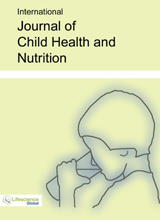Dr. Miklós Somai
I was overwhelmed by the professionalism and fairness of the editorial team throughout the publishing process. I am very grateful for their excellent service and will definitely publish again with the...
Dr Sandeep Kumar Vashist
I am truly impressed with the professionalism and editorial process of Lifescience Global. It has been my best publishing experience so far. The production was very fast and of highest quality. I woul...
Dr. Venant Tchokonte Nana
Lifescience Global is simply fast, efficient and professional. My paper published in the International Journal of Statistics in Medical Research was done in a record time, while it has been in-press i...
Dr. Shigeyuki Hamori
I enjoyed working with the Journal of Reviews on Global Economics. I am very impressed with the professional attitude of the editorial team. I'm looking forward to publishing with Lifescience Global ...
Dr. Evgeni B. Starikov
I enjoyed the publication process with Journal of Applied Solutions Chemistry and Modeling and the time necessary for finalizing the publication is perfect. This is why I will submit my next manuscrip...
Dr. Marjorie R. Freedman
It has been a pleasure working with "Lifescience Global" who recently published a paper I wrote in the International Journal of Child Health and Nutrition. Correspondence was timely, and the publicat...
Dr. David Dunt
Both my coauthors and myself have been very impressed with the quick turnaround of the journal and also the diligence with which the editorial team followed up with us to ensure the expeditious publi...
Dr. Dimitris Hatzinikolaou
I am grateful to the Lifescience Global team for their fast and excellent service. I am truly impressed by the quality and speed of their work, which is often most crucial. I am certainly telling othe...
Dr. Maryam Mobed-Miremadi
It has been a pleasure working with all members of Lifescience Global team from the invitation stage though to the final publication stage. The staff is cordial, articulate and knowledgeable. The res...
Dr. Afef Fekih
Working with Lifescience Global was by far the best publishing experience I ever had. The peer review and editorial decision was quite fast. The editorial team was very professional and answered email...
Dr. Rufino Echegoyen
The experience of working with Lifescience Global has been rewarding. The careful editorial comments and the detailed observations of the academic readers enriched our article. It has been a very good...
Dr. Khaled Y Orabi
It is my honor to publish with Lifescience Global. I offer my sincere appreciation to the publisher for playing a crucial role in enlightening the scientific community.
Dr. Tuomas Takalo
I published my paper in Journal of Reviews on Global Economics, I very much appreciate that the swiftness of the referees during review and the overall publication process.
Dr. James H. Tabibian
Working with the Lifescience Global team to prepare and publish our manuscript was efficient and easy at all steps; it was a great experience.
Denise Baird Schwartz, MS, RD, FADA, CNSC
It looks great online. I am very pleased with the processing of Lifescience Global journals, the process was short and efficient. The free online access is very useful when recommending the article t...
Dr. Rogerio Correa Peres
It was extremely pleasant to work with Lifescience Global and Journal of Pharmacy and Nutrition Sciences (JPANS). The editorial office responses were quick and always very kind. I hope to soon publis...
Dr. Ute Inegbenebor
I must thank Lifescience Global immensely for making my work a success. I am more than delighted at the exceptional display of kindness and forthrightness of the publication team. I wish Lifescience G...
Dr. Oscar A. Linares
I will absolutely spread the excellent experience working with Lifescience Global.
Dr. Jered B. Kolbert
I have greatly enjoyed working with Lifescience Global. I appreciate the professionalism of staff and the speed of response was exemplary. I have never worked with a journal and editor that moved so ...





